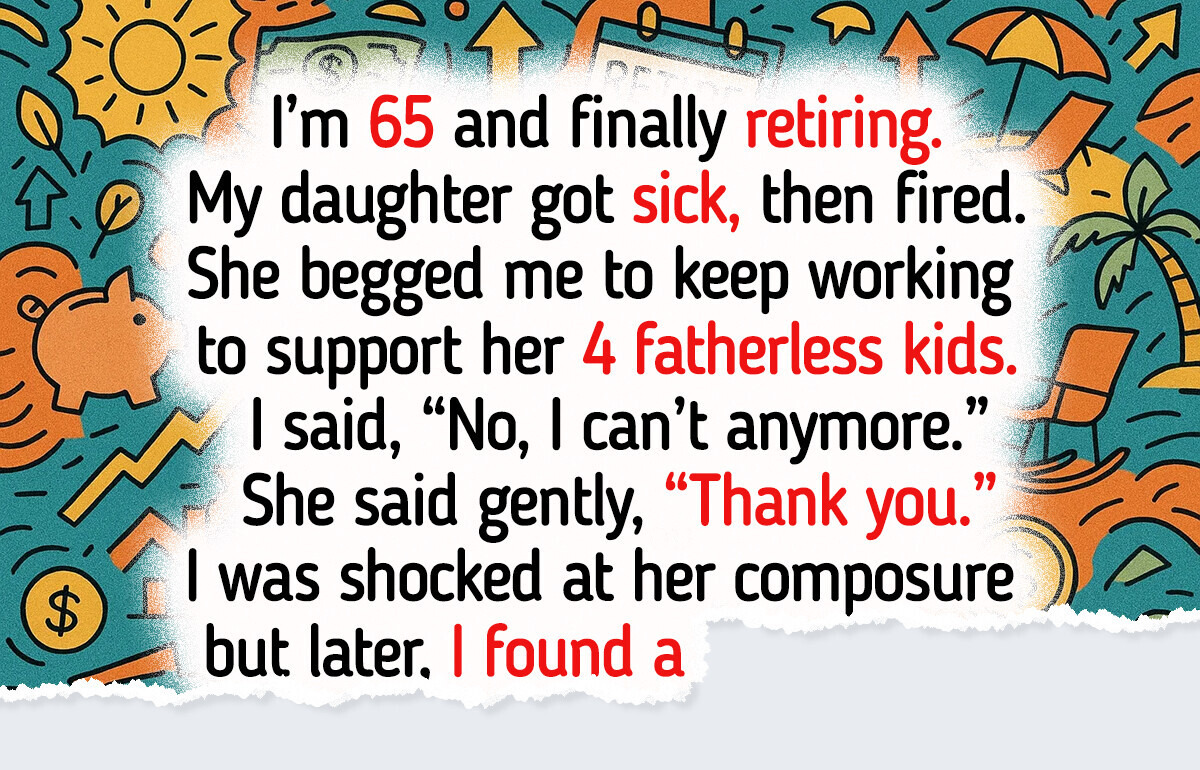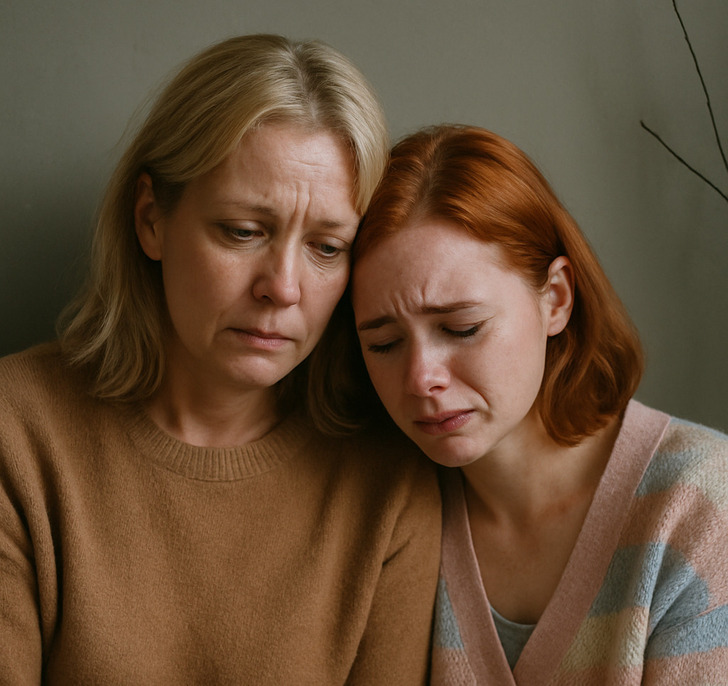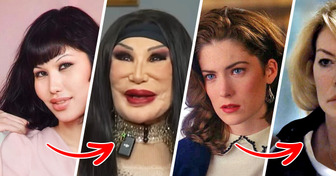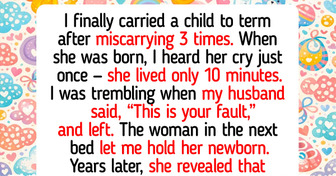Where is the father of her Children? She should go apply for Welfare, Food Stamps and Medical Cards for herself and her children... Stand your Ground.. like others have said above, write her a letter, and send it, invite her and the kids over for a meal and some down to earth Talking... No way should you keep working if you want to retire.. its your Time, your earnings etc..
I Refused to Delay My Retirement to Help My Sick Daughter — Now I’m Heartbroken

In a world where family bonds are often tested by life’s choices, Carol’s heartfelt letter captures the struggle between self-care and duty. After decades of sacrifice, she is finally stepping into the well-earned chapter of retirement—yet finds herself in painful conflict with her daughter. Their strained relationship raises difficult questions about responsibility, sacrifice, and the complexity of love. With empathy, we explore Carol’s dilemma and the delicate balance between personal fulfillment and the expectations of those we hold dear.
Carol’s letter:

Dear NISE,
For context: I’m 65 and finally retiring. My daughter got sick, then fired. She begged me to keep working to support her four fatherless kids. I said, “No, I can’t anymore.” She said gently, “Thank you.” I expected her to cut me off, but instead, she did something that broke my heart—she told the kids that Grandma doesn’t care about us anymore. **
I’ve spent my whole life working hard, putting my own needs second to make sure my children had opportunities. I even delayed my retirement multiple times to help them financially. After decades of sacrifice, I finally reached the point where I wanted to enjoy some peace, travel a little, and simply rest.
My daughter, however, has faced a lot of difficulties. She’s struggled financially, and now with her illness and job loss, she’s under tremendous pressure. I truly empathize with her situation, but I felt like I had already given so much of myself, and it was time to draw the line

When she asked me to keep working, I stood firm. That conversation got heated, and her anger stung deeply. But what hurt the most wasn’t her words—it was hearing that she turned the kids against me, saying I had abandoned them. Now I feel not only guilt, but also betrayal and grief.
I never thought choosing to retire would destroy my relationship with my daughter and grandchildren. I’m torn between the relief of finally prioritizing myself and the heartbreak of losing my family’s love.
So, I’m asking for perspective: Was I wrong to finally put myself first after a lifetime of sacrifice, or is it unfair of my daughter to expect me to give up my retirement for her?
Understanding Your Dilemma
Carol, you have carried the weight of responsibility for your family for many years. Your life has been defined by putting your children first, often at your own expense. Your decision to finally prioritize yourself is not selfish—it is a recognition of your humanity and your right to peace after a lifetime of giving. Wanting rest, joy, and freedom at this stage of life is both reasonable and deserved.
Acknowledging Your Daughter’s Struggles

At the same time, your daughter is in a period of crisis. Her illness and job loss are real and frightening burdens, and her reaction, while painful, likely stems from fear and desperation rather than malice. In moments of vulnerability, people sometimes lash out, projecting hurt onto those closest to them. Her choice to involve the children is deeply hurtful, but it reflects her struggle, not your lack of love.
Finding Balance and Moving Forward

Retirement is a turning point—a chance to reclaim time for yourself. Yet family bonds don’t disappear when boundaries are set; they simply require new ways of navigating. Open communication may help ease the tension. You might consider writing to your daughter or sitting down with her to share not only your perspective, but also your ongoing love and concern for her and the children. Small gestures—offering emotional support, sharing time with your grandchildren, or helping in ways that don’t sacrifice your retirement—may rebuild trust and show that you are still present in their lives.
Talk to a therapist specializing in family estrangement and caregiver guilt.

This is not a choice between family and self—it is about learning to honor both. Carol, your retirement is a well-earned chapter, and your daughter’s struggles are a painful reality. By standing firm in your boundaries while keeping love and dialogue alive, you may find a path toward healing. Family bonds, though strained, can bend without breaking when nurtured with patience, empathy, and understanding.
It’s often wiser to honor your own desires rather than constantly trying to satisfy others. One of our readers, Lynn, chose to exclude her stepfather from her wedding in an effort to please her biological father, but she later came to regret the decision as the repercussions unfolded. Read on!
Comments
Related Reads
6 Hidden Beauty Tricks Celebrities Don’t Want Everyone to Know

14 Everyday Objects That Turned Out Not So Ordinary

14 Celebrity Transformations That Left People Speechless

Psychologists Reveal 8 Quiet Marriage Killers You Might Be Overlooking

I Wasn’t Allowed to See My Grandson for 5 Months — And the Real Reason Left Me Speechless

Courteney Cox Reveals She Dissolved Her Fillers After Regretting Them

18 Stars Who Openly Talked About Plastic Surgery

15 Stars Who Look Like Completely Different People Today

12 Heartfelt Stories Proving Kindness Heals More Than We Realize

14 Star Comparisons That Reveal How Celebrities Really Age

8 Celebrities Who Trusted Cosmetic Surgery — and It Went Terribly Wrong

My MIL Was Sure I Was “Faking My Pregnancy” — What She Did to Prove It Left Me Speechless

